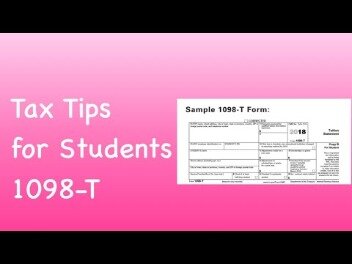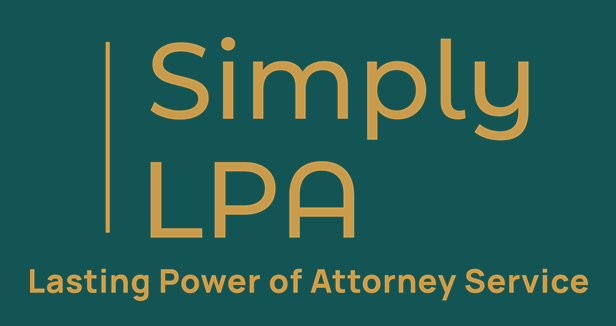Cloud Accounting What is Cloud Accounting?
Contents:


Modern accounting needs to function at a high level of efficiency and cloud accounting software is growing into the tool of choice for any business looking to adapt to this industry-wide modernization. In short, if your company is considering making the switch to cloud accounting software but security is holding you back, rest easy and take a step into the Cloud to enjoy these benefits. Many accountants claim that accessing their financial data anytime anywhere is the best thing you get with cloud accounting.

The provider may also offer a mobile app to improve the user experience on phones and tablets. Bank reconciliation is the administrative process of matching your bank transactions against your customer invoices and supplier bills. With a cloud platform, much of this reconciliation process can be automated and time saved.
As a result of the increasing workload being stored in the cloud, it becomes necessary for businesses to provide additional training for IT and development staff. Cloud-based software are characterized with automatic updates that enable you to increase security and further enhance the functionality of the app. Generally, these tools allow you to alleviate the pain and burden of unnecessary administration, in addition to proactively identifying problems, reducing costs of resourcing, and further saving time.
Best Cloud Accounting Software
Time and cost savings are always achieved by having everyone on the same page. Withcloud accounting software, it’s also easier to get real-time reporting and visibility throughout your organization, with greater mobile capabilities and collaboration. Subscription-based models are popular among cloud accounting providers, and in most cases these subscriptions are usage-based. Companies that pay a cloud accounting subscription receive updates to the software as soon as they arrive, with no additional software purchases required. Adopting cloud accounting software will be of no use if your employees are not informed and onboard regarding the same.
Traditional or paper-based accounting requires every single document to be processed in a particular manner. With cloud-based accounting, this entire process can be rendered paperless. Cloud accounting software also comes with state-of-the-art analytical tools and resources that can give you nuanced insights and complete visibility over all your finances.
If you’re still getting your head around the jargon of cloud accounting, here’s our breakdown of some common terms. Sage 50cloud and Sage 200cloud – Each combine the convenience of the cloud with the power of desktop accounting software. Below are the key areas where a cloud accounting system adds real, tangible value. Yes, SAP, otherwise known as Statutory Accounting Principles, can be used in cloud-based accounting applications and software. SAP is the set of standard rules for accounting practices and financial statements — one of the common accounting languages.
Cloud Accounting vs. On-Premises Accounting: What’s the Difference?
The company may need to purchase new hardware and licenses to serve additional users. As accounting software matured, it took another major leap forward with the invention and advancement of cloud-based accounting systems. Much like other cloud software, these solutions gave businesses game-changing flexibility while reducing capital expenditures and maximizing human resources. In the UK, HM Revenue & Customs is running the Making Tax Digital initiative to make digital tax accounts mandatory for all VAT-registered businesses. With a cloud accounting platform in place, you can record, track and pay your VAT and tax in the digital space and stay MTD-compliant.

Additionally, only 22% of businesses do not plan to take advantage of cloud finance technology in the future, down a few percentage points from the previous year. The interactive elements of your cloud accounting software, that enable you to access the various features and tools. The cloud accounting market is a busy one, with a range of different providers to choose from. Ultimately, the cloud accounting software that’s the best fit for your business will come down to your size, your accounting needs and the choice you want from your app ecosystem. When you log in to your accounting platform in the cloud, you’re always using the latest version of the software. There’s no need for time-consuming and costly updates – you just sign in and start working.
Next Up In Business
In fact, it’s really just the beginning of a technology revolution that will dramatically impact how you do business. Major inefficiencies, siloed data, and a lack of visibility into the payment process is causing organizations to miss out on their potential. But despite this dissatisfaction, few are taking action to improve the process. Bookkeeping and reporting get smarter with ZipBooks, as you can use simple-reconciliation, color coding, auto-categorization, and a whole suite of reports. Simple yet effective, ZipBooks is mashed with features that you didn’t know you needed. For example, you can invite your customers to leave reviews after getting paid.
Also, you should ensure proper storage and file retention policies are in place to protect you against lawsuits and liability claims. If you’re looking for a safe and easy way to shop online without worrying about your financial information being stolen, you might want to consider virtual payment cards. Rated 4.5/5 stars on TrustPilot, FreeAgent can help you stay on top of your tax, manage expenses, and create invoices instantly. It has a very tidy dashboard, so you know exactly what you want to work on. Not to mention, analyzing your reports and creating invoices is just a breeze.
Earlier you would have to dig out information related to an inquiry manually but now this task can be fully automated. Having your data stored on a paperless accounting system means that there are no copies or limited physical books that can only be accessed by individual people at a time. When your data is stored on a cloud that means that that data can be accessed by any number of people at any given time from anywhere. Only by entering login credentials, all these people will be able to see the same data on the same software at the same time and collaborate on the data if necessary. Accounts departments across companies use a lot of documentation – invoices, balance sheets, profit, and loss statements, tax reports the list goes on.
Access your accounts anywhere
The sooner your systems are able to process and manage your accounting data the sooner you can take action on them. It provides an audit trail of all transactions thus reinforcing security, transparency and control. By automating many of the processes involved in making payments, firms and companies streamline their payment operations, reduce costs and paperwork and get an holistic view of the payment cycle. A financial management software connects, creates, reports, and stores various transactions related to cash flow throughout the business.
For instance, FinancialForce Accounting can create sales orders or invoices directly and automatically from Salesforce opportunities, quotes or custom objects. This seamless process eliminates manual activities and automates the opportunity to cash process. Accounting has been assisting every commercial activity ever since the beginning of trade, as simplified as it was at that time. Due to the need to efficiently and accurately translate the economic reality into figures, accounting has been continuously improving. Furthermore, the information technology expansion and the emergence of the internet have also shaped this art of recording. In fact, the 21st century has been marked by several stages in the process of IT enhancement and we have witnessed the rapid spread of these solutions in our daily activities, thus improving our lives.
Canadian cloud accounting unicorn leaks WordPress admin … – CyberNews.com
Canadian cloud accounting unicorn leaks WordPress admin ….
Posted: Wed, 12 Apr 2023 07:00:00 GMT [source]
These aspects of the mark to market will help you ensure smooth accounting operations in the long run. By flexibility, here, we mean a platform whose services can be customized to your company’s scale, scope, and needs. Once you’re finished choosing the right software, training your employees, etc. you then have to implement your new cloud accounting system across the organization.
Cloud accounting:Organizational reportingand visibility
Advanced features, such as bill tracking, inventory management, quote creation, cash flow forecasts and invoice management, are available on the Sage Accounting plan. The higher tier plan is $25 per month but users get 70 percent off the first six months during the current promotion bringing the cost to $7.50 per month. There are a several key distinctions between cloud accounting and traditional, on-site accounting. Accounting data can be accessed from anywhere on any device with an Internet connection, rather than on a few select on-premises computers. Secondly, unlike traditional accounting software, cloud accounting software updates financial information automatically and provides financial reporting in real-time. This means account balances are always accurate and fewer errors take place due to manual data entry.
- All the basics are there but with fewer options when it comes to apps.
- Your policies won’t work unless you have a platform that can support them.
- The Forbes Advisor Small Business team is committed to bringing you unbiased rankings and information with full editorial independence.
- As stated above, having an actual accountant on standby is quite necessary.
Cloud solutions use the same type of security used to make financial data and online banking safe. Cloud accounting is a system that allows multi-user access and safe online or remote server storage. Your users send all your data to cloud providers where the same data is processed and safely stored, and returned. Cloud technology allows business processes to be streamlined and tailored to company growth. Cloud accounting uses accounting software hosted on a safe remote server.
The practice of storing and processing data on physical servers or paper is no longer efficient enough for the finance world. As an upgrade to these traditional systems, we now have cloud-based accounting automation. With these platforms, you can store and process all your data on online ‘cloud’ servers that can be accessed anywhere anytime by anyone who has the correct login credentials.
Start by conducting small-scale test runs using a small team working on two or three processes that consume a lot of paper. Once these test runs show fruitful results you can then move on to implementing the new systems across the organization. NetSuite accounting software can be accessed from anywhere and at any time. Payment management, fixed asset management, close management, and cash management are other things you can do with the help of this software. This software is also capable of tracking all transactions, managing debit and credit, collecting taxes, and providing you with accurate reporting. Moreover, you get real-time access to your financial data for statement generation, compliance disclosure, and many more.
We make getting data from you simple – our process includes several methods to get your data and documents into your accounting system. We care about you – within 30 days from your purchase, if you’re unhappy with our services, we’ll refund our fee. Email or call us, and we’ll process the refund within five working days. The transactions will be recorded immediately and you can even export them into the relevant tax return templates and send them digitally whenever you need to.
Accounts payable is the money your business owes to its vendors for providing goods or services to you on credit. Different vendors have different payment terms, so you should use this to your advantage. Deferred Revenue is when a client pays you ahead of you delivering a service. For example, if you charge a client’s credit card for a 12-month subscription, contracts – you just got 12 months of cash from that client! But you owe them the subscription, so Deferred Revenue gets added to your balance sheet as a liability.
The key to loving it is effective best practices, consistent communications and efficient processes, systems & workflows. Your policies won’t work unless you have a platform that can support them. When you’re formulating your approach towards going paperless, keep in mind the kinds of tools you’ll have to be equipped with to tackle the challenges you might face. Last, but definitely not least, your focus should be on ensuring that the guidelines you have laid out and those required by your government are both followed and at the same time risks are kept at a minimum.
In other words, even if someone were to hack into the cloud and steal your client’s data, it’s highly unlikely that they could decode it. Versatile and reliable financial management program for accounting firms and small businesses. Automatic accounting software based on your bank transactions with free accounting guidance.
Resellers urged to get involved with cloud accountancy Microscope – ComputerWeekly.com
Resellers urged to get involved with cloud accountancy Microscope.
Posted: Mon, 17 Apr 2023 14:59:21 GMT [source]
We reviewed several cloud accounting software providers using a detailed methodology to help you find the eight best payroll services for small businesses. Our ratings considered factors that included starting price, price range, multiple essential accounting features, reviews by actual customers and scoring by our panel of experts. Therefore if your current payment processing system is outdated, it may be costing you money in fees, lost time, and risk of fraud. They allow firms and companies to make simple and secure payments without chasing bank account details or having to log into online banking.
Plus, you don’t have to be responsible for applying security fixes – your software provider will handle that for you automatically. Recording the income and expenditure of your small business to keep track of your historical financial performance is nothing new. Double-entry bookkeeping has been around for centuries and accounting software has existed for decades, giving finance teams the ability to record and track the money coming into, and out of, the company. QuickBooks is an accounting software package designed for small and medium-sized businesses.
For instance, you can enter your vendor information and set up a workflow that automatically pays the vendor on the same due date each month. Also, you can automate sending out invoices to your recurring customers. When all data is stored on the cloud, you can get a completely up-to-date view of your current financial situation.
